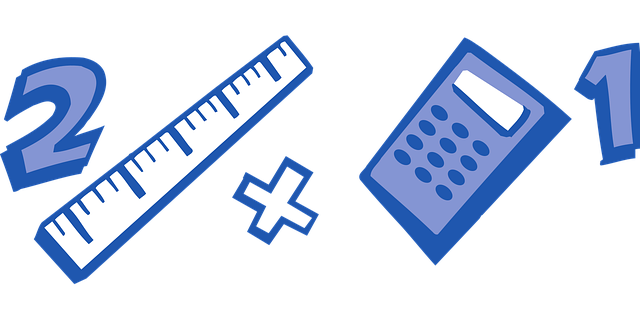Cognitive-Behavioral Therapy (CBT) is a powerful, evidence-based natural remedy for cocaine withdrawal, focusing on identifying and challenging negative thought patterns. CBT encourages clients to replace distorted thinking with balanced perspectives, teaching coping strategies and skills for maintaining healthy relationships. This approach is especially beneficial during early sobriety, helping individuals recognize triggers and high-risk situations while promoting mindfulness techniques to reduce cravings and relapses. Rehabilitation centers often incorporate CBT into their programs, offering holistic care for both addiction and mental health concerns.
“Cognitive-behavioral therapy (CBT) emerges as a powerful tool in the realm of addiction recovery, specifically for those seeking natural remedies for cocaine withdrawal. This article delves into CBT’s mechanism, focusing on its ability to empower individuals to challenge and reframe negative thoughts. We explore how CBT can be applied during withdrawal, helping clients navigate their mental landscape and overcome cravings. By understanding CBT’s role in cocaine withdrawal treatment, we uncover practical strategies to implement this effective therapy as a holistic approach to recovery.”
- Understanding Cognitive-Behavioral Therapy (CBT) and Its Mechanism
- CBT's Role in Reframing Negative Thoughts During Cocaine Withdrawal
- Practical Strategies for Implementing CBT as a Natural Remedy for Cocaine Withdrawal
Understanding Cognitive-Behavioral Therapy (CBT) and Its Mechanism

Cognitive-Behavioral Therapy (CBT) is a well-established natural remedy for cocaine withdrawal and other substance use disorders. Its mechanism lies in helping clients identify and challenge negative thought patterns, which in turn influence their behaviors. CBT encourages individuals to replace self-destructive or distorted thinking with more balanced perspectives, fostering healthier decision-making processes. Through this reframing of thoughts, CBT empowers clients to develop coping strategies that support long-term recovery.
This therapeutic approach is particularly effective during early sobriety, where establishing healthy relationships and maintaining them can be crucial. The process involves guiding individuals to recognize triggers and high-risk situations, teaching them skills to navigate these challenges without resorting to substance use. By integrating CBT with coaching in healthy relationships, individuals gain a robust support system, enhancing their chances of achieving and maintaining sobriety.
CBT's Role in Reframing Negative Thoughts During Cocaine Withdrawal

Cognitive-behavioral therapy (CBT) plays a pivotal role in helping individuals navigate and overcome cocaine withdrawal by empowering them to challenge and reframe negative thoughts and behaviors associated with their addiction. During this critical period, CBT offers a structured framework for understanding the underlying triggers and patterns that contribute to drug-seeking behaviors. By identifying and modifying these thought processes, individuals can gain a new perspective on their challenges, making it easier to stick to natural remedies for cocaine withdrawal like mindfulness practices and behavioral interventions.
Through personalized mindfulness plans tailored to individual needs, CBT encourages clients to focus on the present moment, reducing reliance on negative thought patterns linked to past experiences or future anxieties. This proactive approach not only facilitates recovery but also equips individuals with valuable coping strategies for managing cravings and relapses. Moreover, CBT can be integrated into rehabilitation centers near me, where co-occurring disorder treatment options are readily available, ensuring comprehensive care that addresses both the addiction and any underlying mental health conditions.
Practical Strategies for Implementing CBT as a Natural Remedy for Cocaine Withdrawal

Cognitive-behavioral therapy (CBT) offers practical strategies to tackle cocaine withdrawal by empowering individuals to challenge and reframe their negative thoughts and behaviors associated with substance use. This natural remedy focuses on identifying and modifying distorted thinking patterns, which can significantly alleviate withdrawal symptoms and enhance overall well-being. By learning to replace self-destructive thought cycles with healthier alternatives, CBT enables clients to develop coping mechanisms that support long-term recovery.
Implementing CBT as a natural remedy involves several key steps. Initially, individuals identify triggers and high-risk situations that contribute to cocaine use. Through mindfulness techniques for stress relief, they learn to recognize early warning signs of cravings and withdrawal. Then, using evidence-based methods, CBT helps clients challenge negative thoughts and replace them with more realistic and positive ones. Recovery support services providing ongoing guidance and encouragement throughout the recovery journey can reinforce these skills, making it easier for individuals to resist relapse and embrace a healthier lifestyle. Rehabilitation centers near me often incorporate CBT into their comprehensive treatment programs, offering individuals valuable tools to manage cravings and lead fulfilling lives free from cocaine’s hold.
Cognitive-behavioral therapy (CBT) emerges as a powerful tool in the realm of natural remedies for cocaine withdrawal, offering clients a way to navigate and overcome their addiction. By focusing on reframing negative thoughts and behaviors, CBT enables individuals to gain control over their minds and make healthier choices. This therapeutic approach, with its practical strategies, has the potential to revolutionize how we address substance abuse, providing a holistic path to recovery and long-term well-being.






